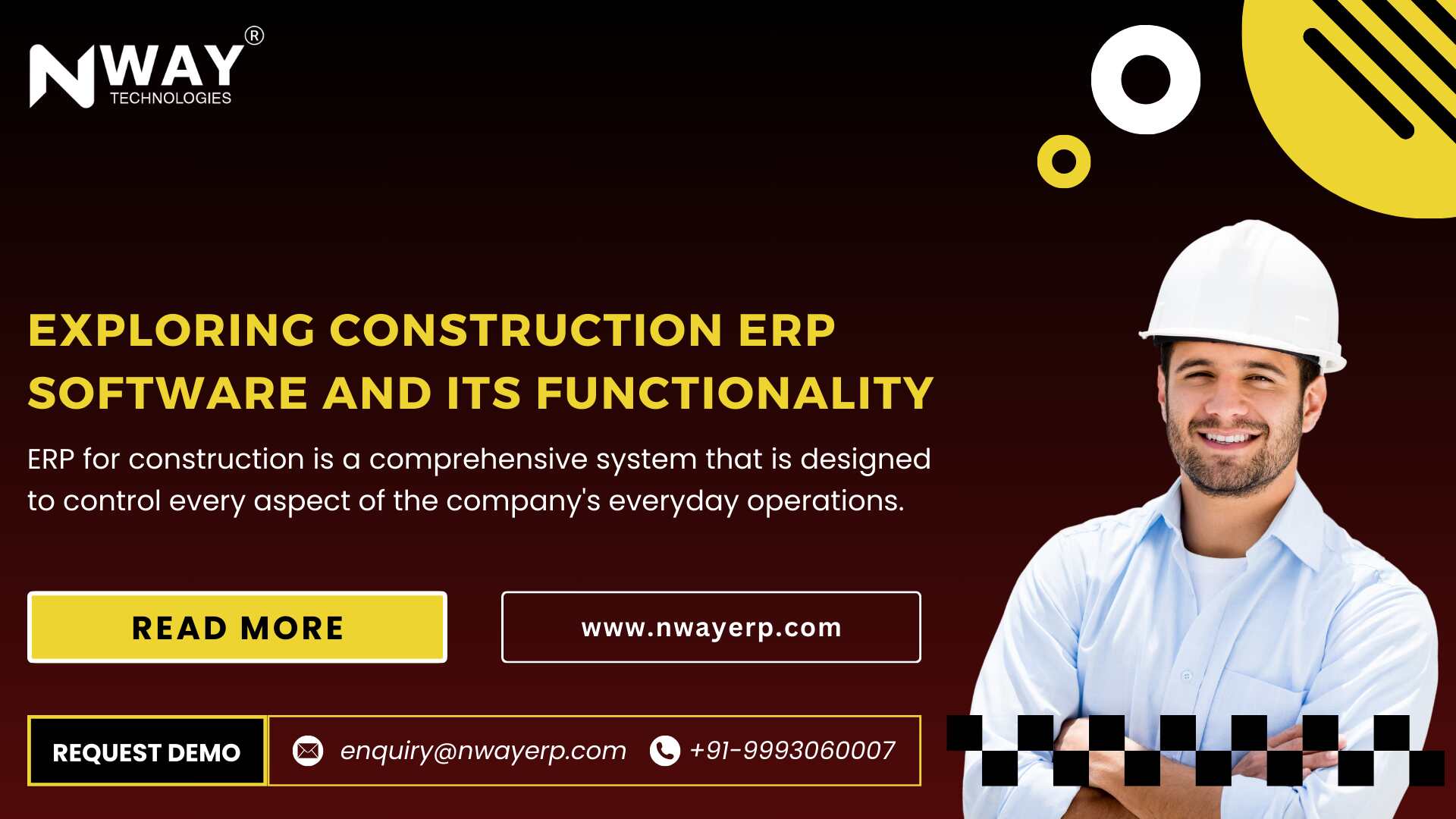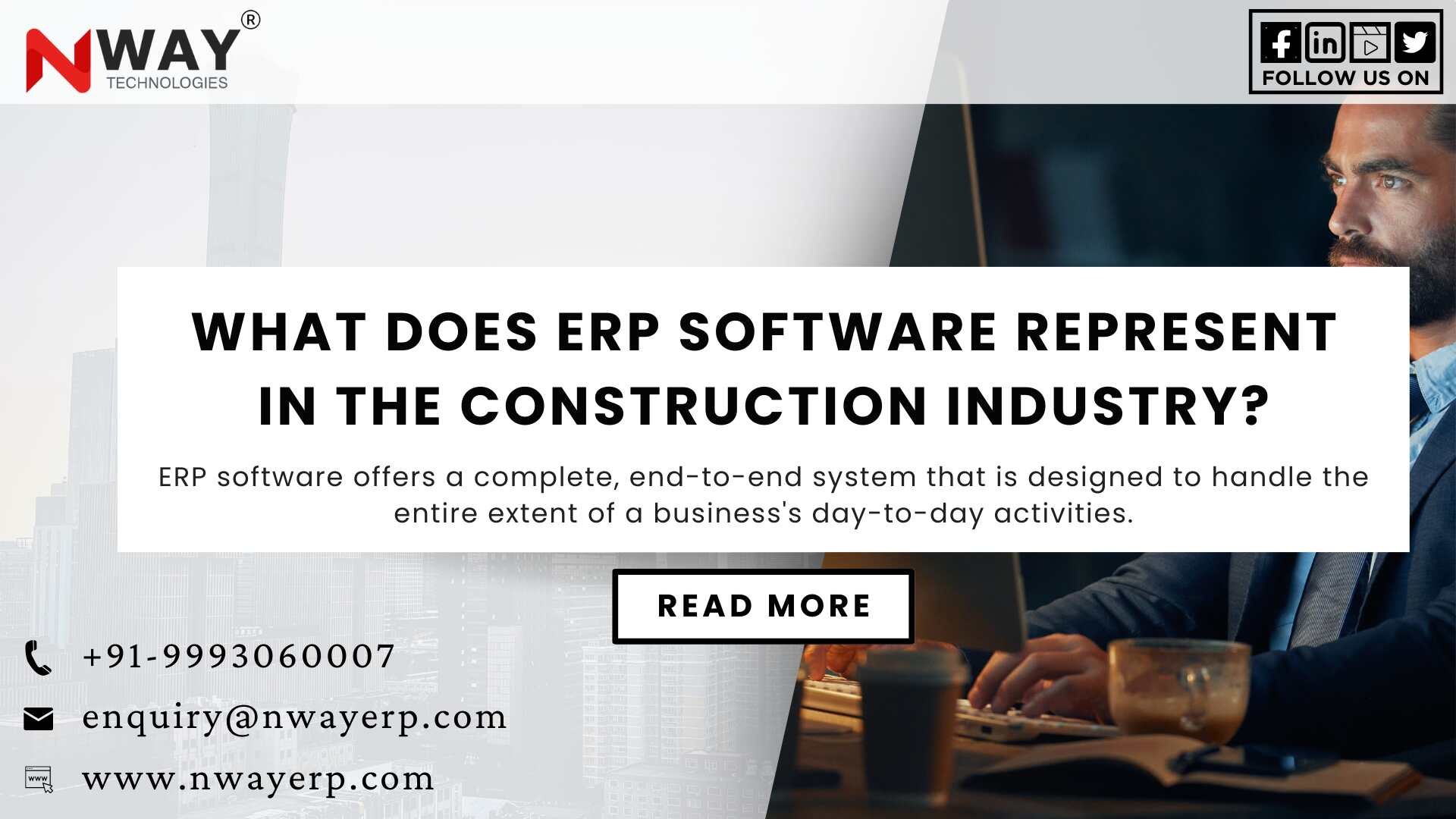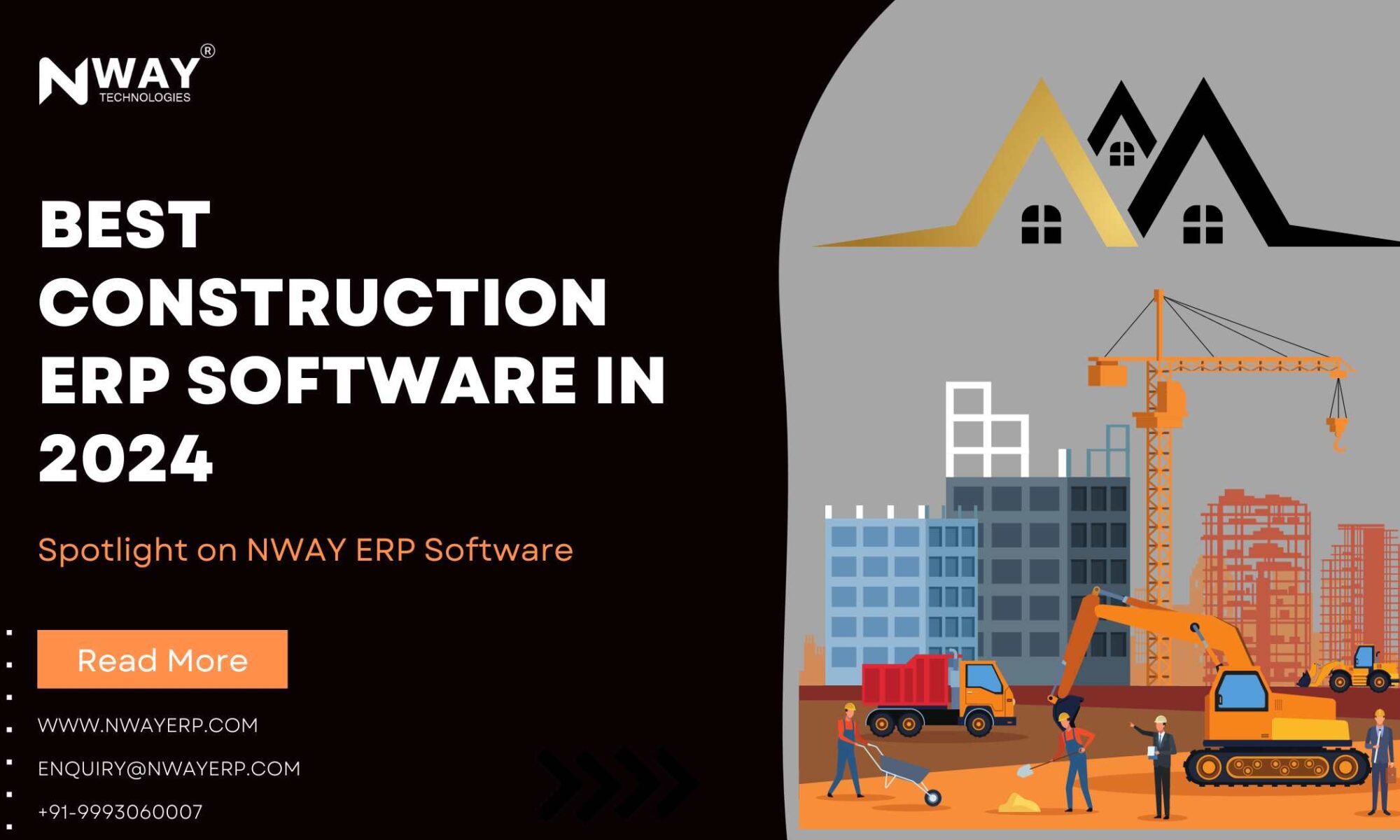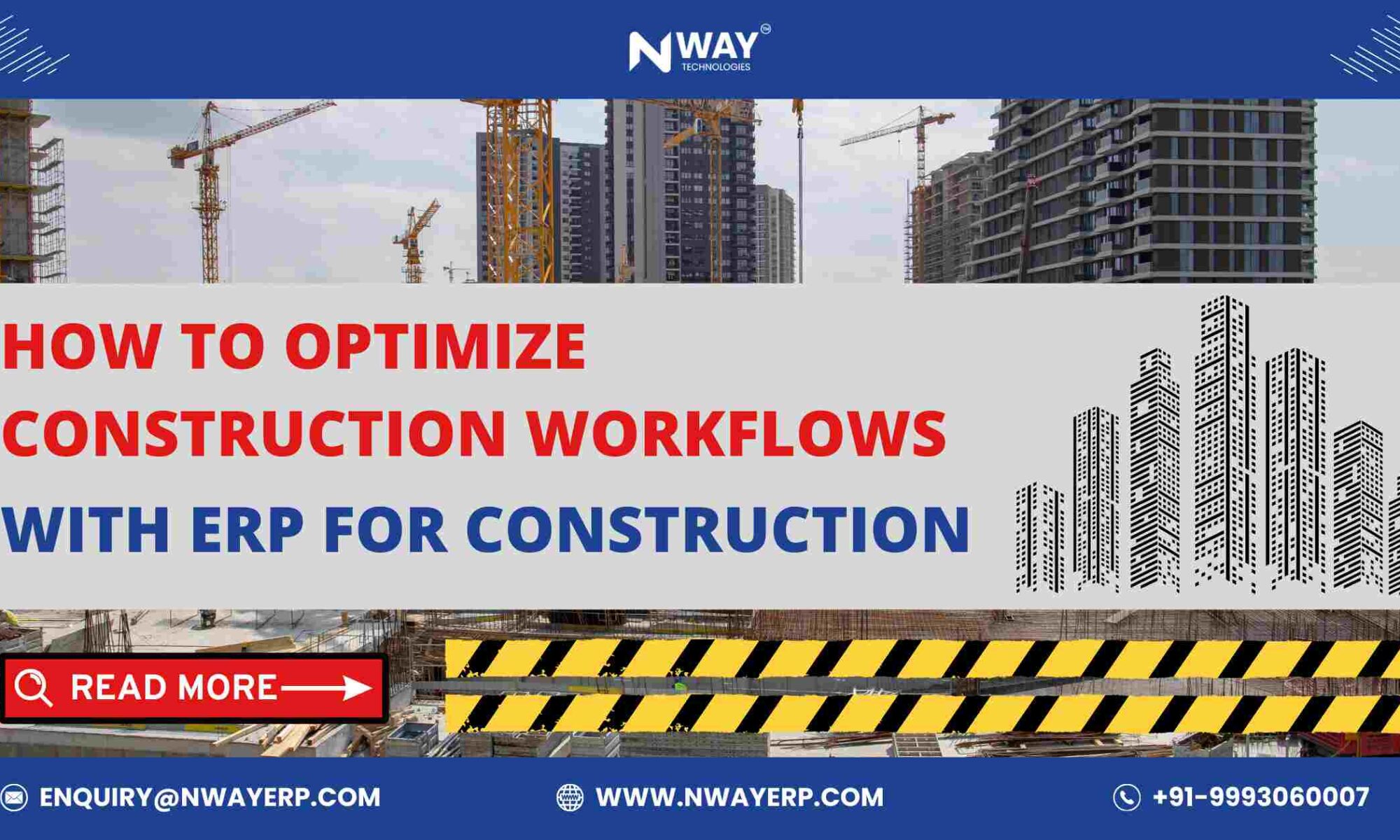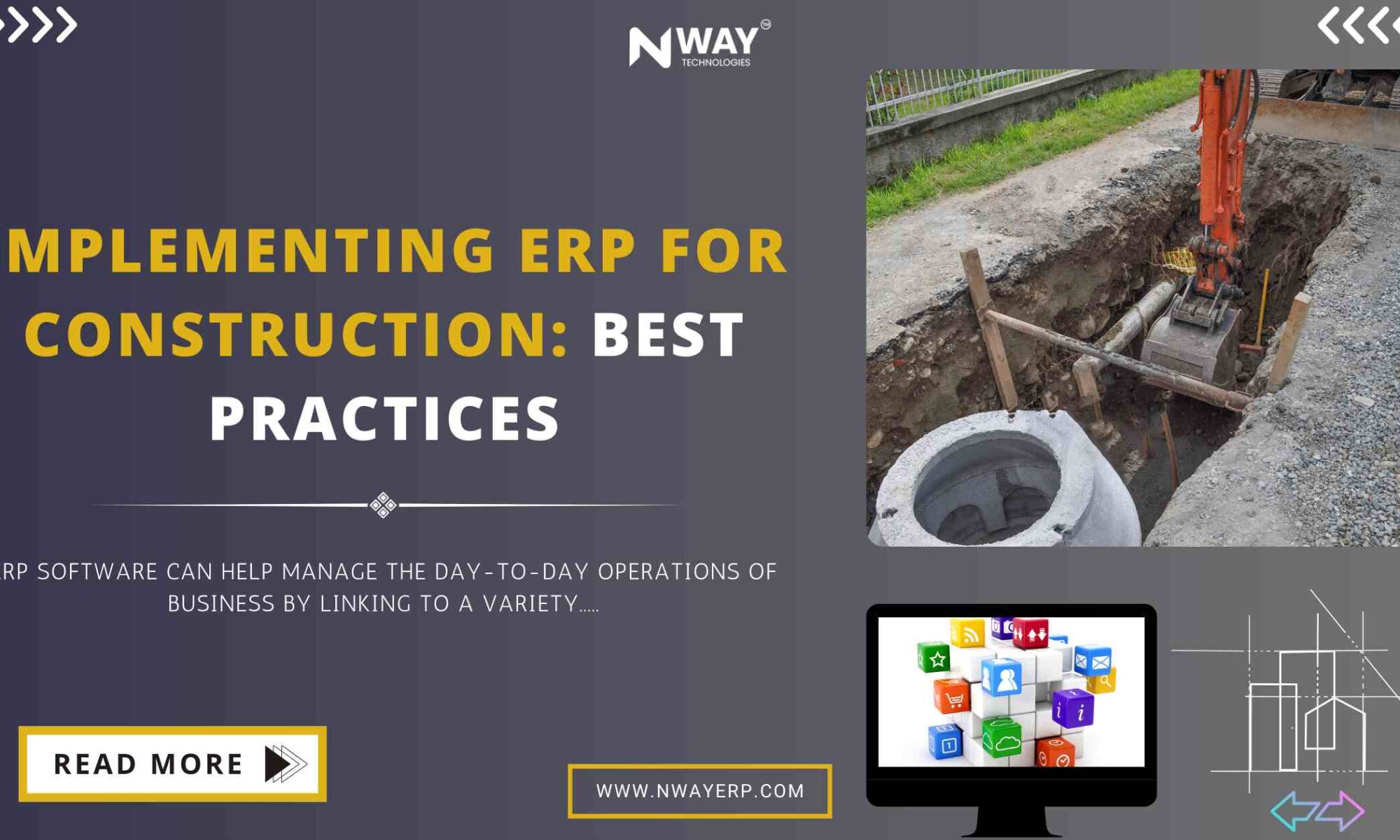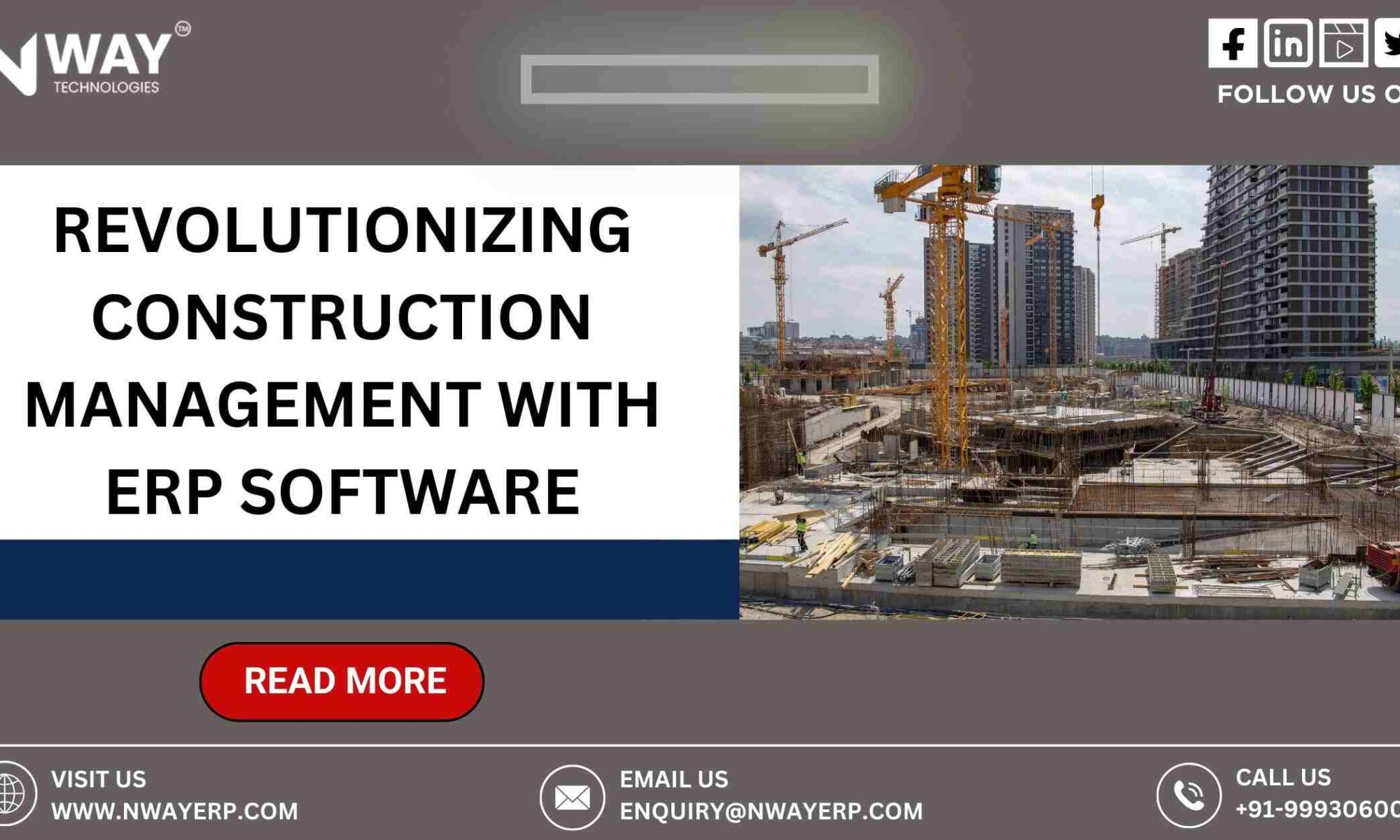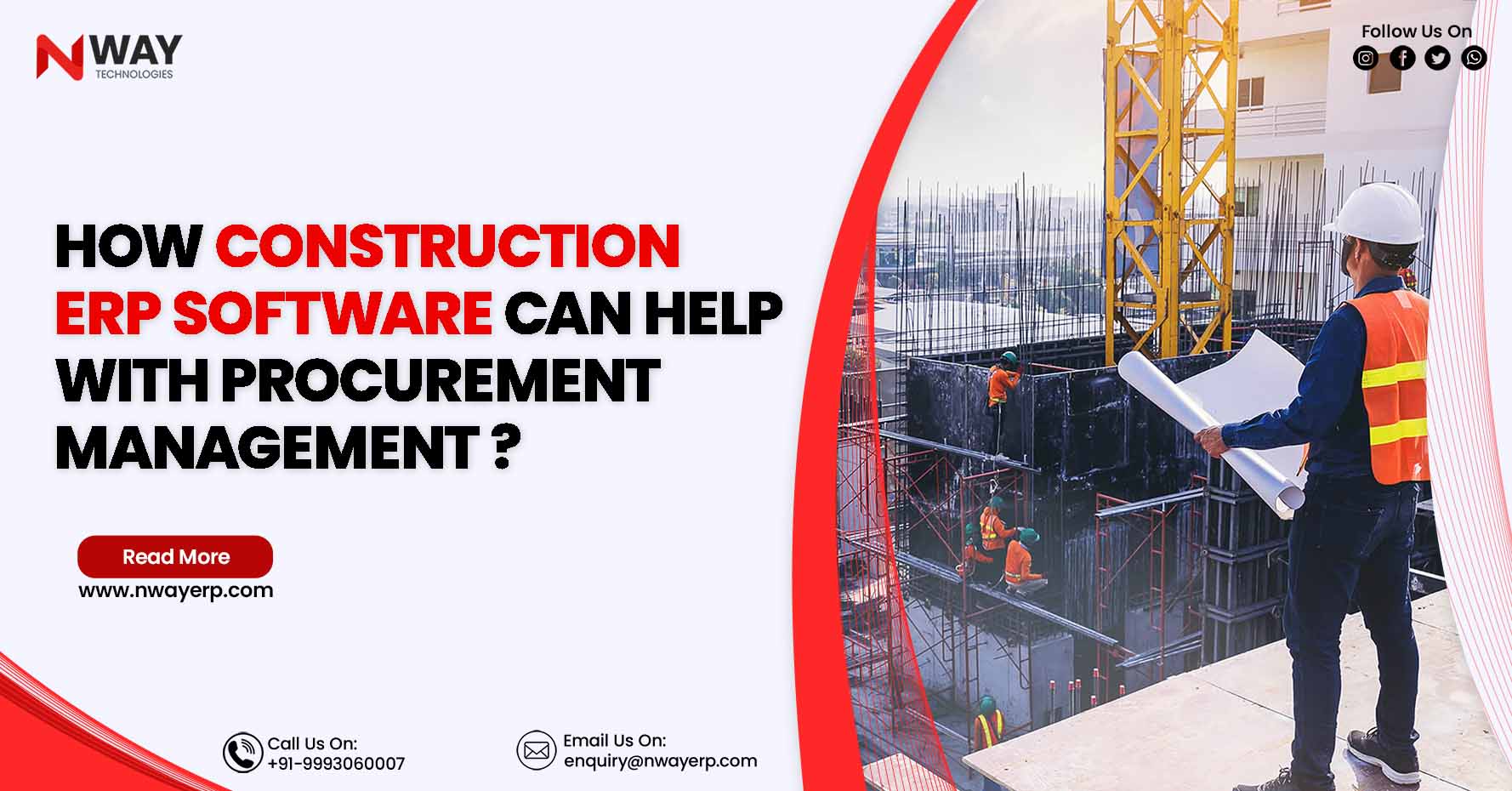In the fast-paced world of construction management, maintaining ahead of project deadlines, managing resources efficiently, and controlling costs are critical. In this deep examination, we look at the critical role of Enterprise Resource Planning (ERP) solutions in tackling these difficulties and transforming the construction sector.
What is Construction ERP Solution
Construction ERP (Enterprise Resource Planning) solutions are elegant software systems developed to meet the construction industry’s unique challenges and requirements. These systems give construction companies a single platform to handle all parts of their projects, such as planning, resource allocation, cost control, and collaboration. At its core, a construction ERP solution connects many departments and services inside a construction company, allowing for seamless communication and data sharing throughout the organization.
Key Components of a Construction ERP Solution Typically Include:
Project Planning and Scheduling: Construction ERP software simplifies the formulation and maintenance of project schedules, allowing construction managers to organize tasks, allocate resources, and define milestones. Advanced scheduling capabilities help to improve project timeframes and guarantee that resources are used efficiently.
Resource Management: Construction ERP solutions enable organizations to track and manage resources such as materials, equipment, and staff in real time. This covers inventory management, equipment tracking, and personnel scheduling, which all help to avoid resource shortages, delays, and excess allocation.
Cost Control and Financial Management: Construction ERP systems include tools for tracking project expenses, managing budgets, and reviewing financial performance. Budgeting, forecasting, and expense tracking tools help construction organizations discover cost overruns, manage financial risks, and maintain profitability.
Document Management and Collaboration: Construction projects require a large volume of documentation, such as contracts, drawings, and change orders. ERP solutions include document management tools that let you organize, store, and exchange project documents securely. Collaboration technologies let project stakeholders communicate and collaborate more effectively, both internally and with external partners.
Reporting and Analytics: Construction ERP software offers thorough reports and analytics dashboards that provide information about project performance, resource utilization, and financial parameters. These analytics enable construction managers to make more informed decisions, discover trends, and improve project outcomes.
Challenges in Construction Management
Construction projects are extremely challenging, with complex deadlines, various resource requirements, and tight budget limits. Managing these issues properly presents major challenges for construction managers.
How ERP Solutions Address Challenges
ERP solutions provide a comprehensive set of capabilities for streamlining project planning and scheduling. By combining numerous project factors into a unified platform, these solutions allow construction managers to maximize resource allocation, ensuring that the necessary supplies and staff are accessible when and where they are required. Furthermore, ERP systems enable real-time cost monitoring and analysis, allowing decision-makers to detect possible cost overruns early and take remedial action quickly.
Benefits of Using Construction ERP Solutions
- Enhanced Collaboration: Cloud-based ERP solutions provide seamless collaboration among project stakeholders, regardless of their physical location. Real-time data sharing enhances communication and cooperation, resulting in better project outcomes.
- Data-Driven Decision Making: ERP systems give managers accurate, up-to-date project data, allowing them to make more educated decisions. Advanced analytics capabilities provide predictive insights, enabling for proactive risk management and resource efficiency.
- Improved Project Visibility: Comprehensive reporting capabilities provide stakeholders with a complete perspective of project progress and performance. Dashboards and KPI tracking tools make it easier to monitor critical project KPIs and intervene quickly when needed.
Future Trends in Construction ERP Solutions
As technology advances at a rapid pace, the future of construction ERP solutions holds exciting advancements that will improve efficiency, cooperation, and project outcomes. Here are some important trends to look out for:
Integration of Building Information Modeling (BIM)
BIM integration will soon change the way construction projects are planned, built, and carried out. By merging BIM and ERP technology, construction organizations may generate digital twins of their projects, allowing for detailed visualization and simulation of construction processes.
This integration will facilitate better coordination among project stakeholders, minimize errors and rework, and ultimately lead to more cost-effective and sustainable construction practices.
Internet of Things (IoT) Connectivity
IoT sensors and devices are increasingly being used on construction sites to gather real-time information about equipment performance, environmental conditions, and worker safety. Integrating IoT data streams with ERP systems allows construction managers to acquire useful insights into project progress, resource utilization, and risk concerns. IoT connectivity enables predictive maintenance capabilities, which can assist prevent equipment failures, optimize maintenance schedules, and reduce downtime.
Artificial Intelligence (AI) and Machine Learning
AI and machine learning algorithms are transforming the way construction ERP systems evaluate and interpret project data. These technologies enable ERP systems to detect trends, forecast outcomes, and offer the best courses of action in real time. AI-powered analytics can extract hidden insights from massive volumes of project data, allowing construction managers to confidently make data-driven decisions.
Mobile and Cloud Computing
Mobile apps and cloud-based ERP platforms are becoming more popular in the construction industry. Mobile ERP apps enable project managers and field people to access key project information at any time and on any device. Cloud-based ERP solutions provide scalability, flexibility, and seamless integration, allowing construction enterprises to respond to changing project requirements and business needs.
Sustainability and Green Building Practices
Sustainability is becoming more important in building project design and execution. Construction ERP solutions will help businesses analyze and manage sustainability indicators including energy efficiency, carbon emissions, and waste reduction. Integration with sustainability standards and certifications will allow construction companies to demonstrate their commitment to environmental responsibility while also attracting environmentally sensitive customers.
Why Choose NWAY Construction ERP Software
NWAY Construction ERP Software stands out as a complete and dependable solution designed exclusively for the demands of the construction sector. Here are some major reasons why construction companies should utilize NWAY:
Industry Expertise: NWAY understands the construction industry’s particular issues and requirements, as seen by its specialized ERP system.
Robust Features: NWAY Construction ERP Software provides a comprehensive set of capabilities, such as project planning and scheduling, resource management, cost control, and more, to help construction companies simplify operations and maximize productivity.
Scalability and Flexibility: NWAY’s ERP solution is highly scalable and flexible, enabling construction organizations to easily adjust to changing project requirements and commercial expectations.
Seamless Integration: NWAY Construction ERP Software interfaces smoothly with various business systems and technologies, allowing construction organizations to maximize their existing investments and achieve higher interoperability.
Proven Track Record: NWAY has a proven track record of successful ERP implementations in the construction industry, with numerous satisfied clients benefiting from increased productivity, cost savings, and improved project outcomes.
Read More : Exploring Construction ERP Software and Its Functionality
Conclusion
ERP solutions are a critical component of modern construction management, allowing businesses to overcome problems, exploit opportunities, and succeed in an increasingly competitive market context. In short, the importance of ERP technologies in construction management cannot be emphasized.
ERP solutions enable construction organizations to overcome problems, increase efficiency, and achieve success in today’s competitive market climate by providing a unified platform for project planning, resource management, and cost control.

